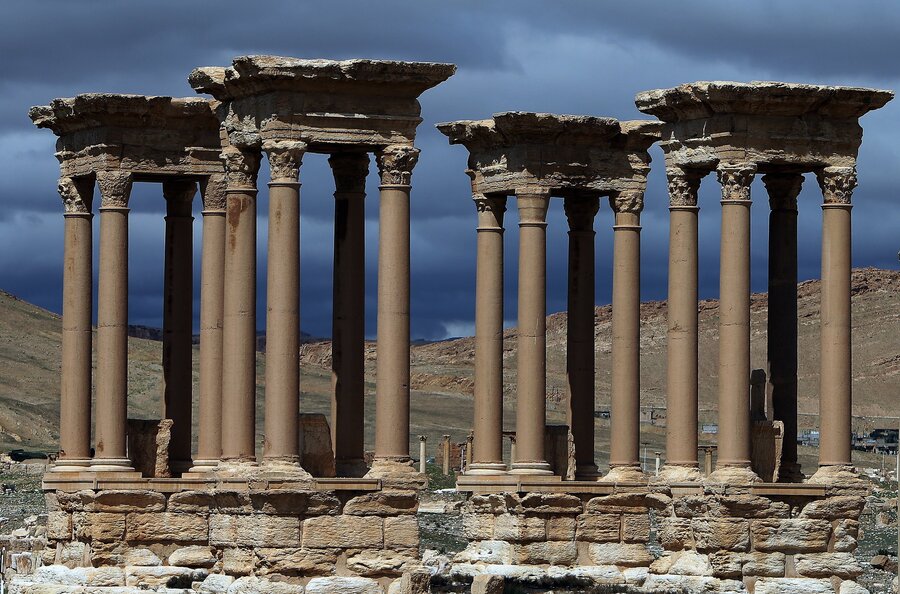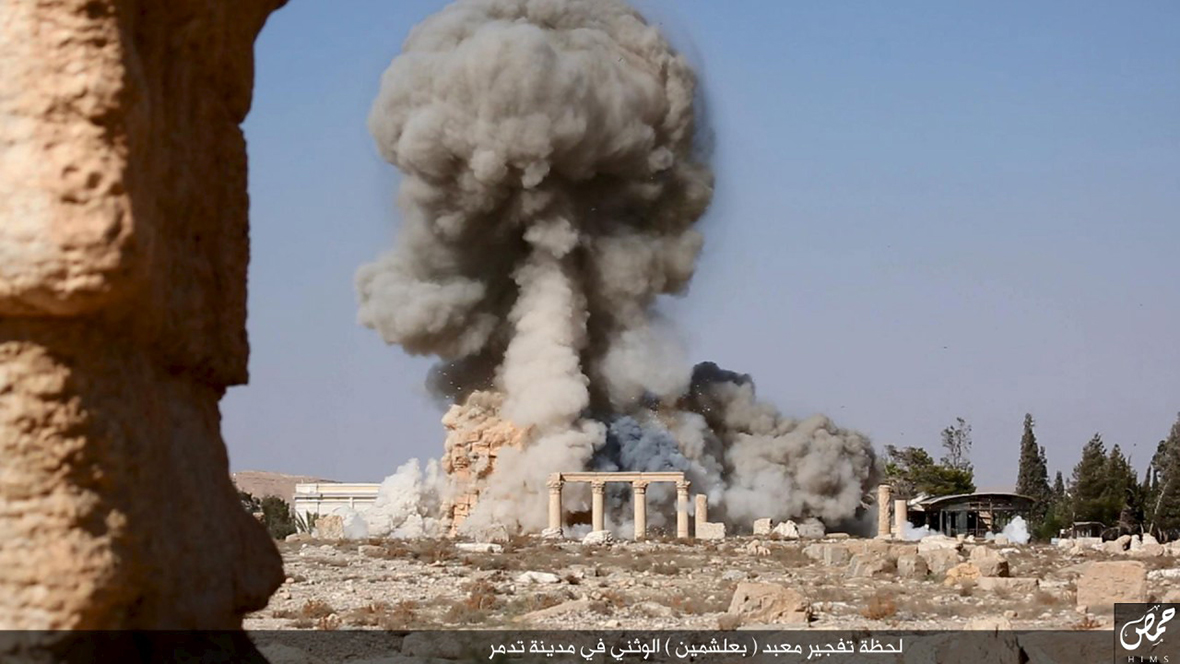Isis destroys more of Palmyra including Roman amphitheatre, say Syrian authorities
Source: The Independent
Isis has inflicted more damage on the ancient Roman city of Palmyra in Syria, the Damascus government has said.
Satellite imagery analysed by an NGO dedicated to preserving Syria and Iraq's cultural heritage shows that the famous cubic-shaped Tetrapylon and part of the facade of the site's amphitheatre have been destroyed, probably with dynamite, during an attack on Wednesday.
New stone debris can been seen scatted across the amphitheatre's stage, as well as damage to the facade's backdrop, the Boston-based ASOR group said on Thursday. Two of the Tetrapylon's four columns and the majority of the structure's centre have been severely damaged, ASOR added.
Read more: http://www.independent.co.uk/news/world/middle-east/isis-destroy-palmyria-central-syria-ancient-city-roman-amphitheatre-antiquities-islamic-state-a7536686.html
rumdude
(448 posts)You know you're a following a bankrupt ideology when you do stupid sh-t like this.
tenorly
(2,037 posts)It's small consolation; but we'll always have the image.
We should have never meddled in Syria. It did seem like a good idea at the time, as bad as Assad is - it's just that nobody considered Murphy's Law.
[center]

Goodbye.[/center]
Calista241
(5,585 posts)tenorly
(2,037 posts)Really painful to look at - but in a way fitting, on a day like today.
karynnj
(59,492 posts)Obviously the rt and and press story is that we were behind the entire rebellion. Yet, if you listen to the rebels, they scream that the US has never helped them -- as Russia and Iran helped the Assad side.
It is clear that Petraeus, Gates and Clinton wanted to support the rebels in 2011 and 2012 more than we did and it is clear that the FSA received training and non weapon support from the US. It is clear that we did in some ways encourage, or at least not discourage their rebellion. Additionally, we did not discourage Sunni nations in the region from helping them.
There were forces - some amplified by the Iraq war - that led to the chaos and uprisings all over the middle east. Many authoritarian governments were toppled. The US does not control everything that happens all over the world. I remember in the case of Egypt the question was whether to overtly support an authoritarian President, who was very pro-America, or to recognize that what many young people said in Tahrir Square were American values. We stayed out, the Muslim Brotherhood won the election, not the young people, that government was toppled after even bigger protests in the street. They now have an authoritarian general (SiSi) leading the country, who is less friendly than Mubarak was. Yet, imagine if we would have attempted to keep Mubarak in power.
Decades from now, historians will try to assess what happened in Syria. It is clearly a nightmare. It is also clear that it is several wars all on top of each other - with many internecine connections winding snake like under the surface. It may be that the US, in the very early days, encouraged people who were speaking out against Assad -- and at least two factors caused things to spiral out of control. One was that Assad, like his father before him, responded to peaceful protests in a a very heavy handed, brutal way - which moved him from a leader we disliked to one guilty of crimes against his own people. The other was that the Sunni tribes that had ruled Iraq under Saddam Hussein come from an area that straddles the Iraq/Syrian border. It is from there that ISIS was born - taking land from both Iraq and Syria.
This was not Iraq, where Bush attacked because he and the neocons thought they could rewrite the world. It was not even Libya, where out of liberal humanitarian intervention, where the potential genocide that Gaddafi had threatened pushed people who still regretted the world not responding to Rwanda to intervene. I still do not understand how the US policy morphed from the UN resolution to create a no fly zone to prevent aerial attacks on Benghazi to actively helping topple Gaddafi. If you look back at what the administration told Congress and the positions of people in Congress - what we did was McCain's position - not the administration's, which was the UN position, or many of the Democrats, saying "no", or many Republicans saying that this had no US interests involved.
I think, the US did LESS in Syria than in Iraq and in Libya -- and as said was criticised by our allies in the region for doing so.
However, even with hindsight being 20/20, it is not clear there was a good option.
The neocons are claiming that the problem was that the US did not overtly enter the war in 2011 or 2012 before Russia increased its efforts. This ignores that Russia has long had ties to Assad and had a base there. Claims that we could have then created a no fly zone over the country ignore that Russia would have reacted at that point. Not to mention, look at Iraq and see how stable a successor government might be.
Then there are those who question if it would have been better to do absolutely nothing. Here, contrary to RT claims, the protests would have still occurred, Assad would have still responded as he did (he was not constrained when the world objected), and you still had the porous border where ISIS was coalescing and was soon to threaten both Iraq and Syria. This was a powder keg ready to explode.
The world likely would still have become engaged to fight ISIS.
The first thing the US did was to push Iraq to shift to a more inclusive government and the coalition has been the air power behind the Iraqi and Kurd armies reclaiming Iraqi land. The policies of the coalition specifically want the local people reclaiming, rebuilding, and governing the areas reclaimed. The idea being that this would lead to a better chance that the areas could become stable than something like the Iraq War.
In Syria, even had the US not entered the fight, if we pushed - as we did in Iraq - for a more inclusive government, Assad, fighting with moderate Sunnis, would have refused. So, the international effort to fight ISIS might have led us to nearly the same point. It is likely that - just as he did - Assad would concentrate on attacking the moderates ceeding the north east of the country near Raqqa to ISIS. Probably the only advantage is that rt would have a harder time arguing that the US was not fighting ISIS or that the US actually supported ISIS -- when it has been the US and coalition - not Assad and Russia - who actually have been the ones fighting ISIS.
yuiyoshida
(41,817 posts)Blew up those Ancient Buddha's ..

